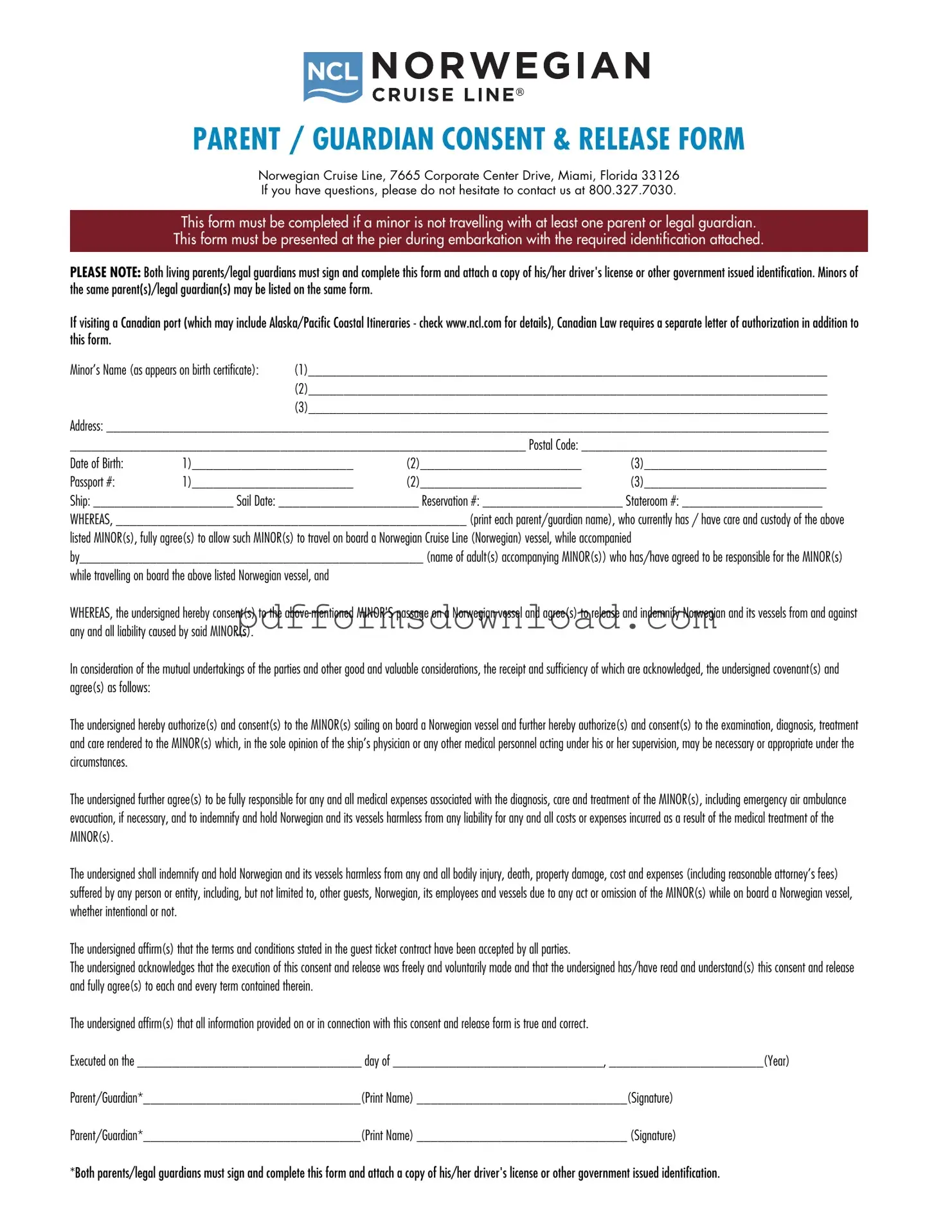What is the NCL Parental Consent form?
The NCL Parental Consent form is a document that allows parents or guardians to give permission for their children to participate in specific activities or programs. This form is particularly important in educational settings where students may be involved in activities that require parental approval, such as field trips, research projects, or other extracurricular programs.
Why is the NCL Parental Consent form necessary?
This form is essential for several reasons. First, it ensures that parents are informed about the activities their children will be participating in. Second, it protects the rights of minors by requiring parental approval for certain activities. Lastly, it helps institutions manage liability and maintain safety standards, as they need to know that parents are aware of and agree to the activities their children will engage in.
Who needs to sign the NCL Parental Consent form?
Typically, the form must be signed by a parent or legal guardian of the student. In cases where a student is over 18, they may be able to sign the form themselves. However, if the student is a minor, a parent or guardian’s signature is required to validate the consent.
What information is included in the NCL Parental Consent form?
The form generally includes details such as the name of the student, the specific activity for which consent is being sought, the dates of the activity, and any potential risks involved. Additionally, it often requires emergency contact information and may include sections for parents to outline any medical conditions or special needs their child may have.
How does a parent or guardian submit the NCL Parental Consent form?
What happens if the NCL Parental Consent form is not signed?
If the form is not signed, the student may not be able to participate in the designated activities. This policy is in place to ensure that all necessary permissions are obtained and that the institution is protected from potential liability. Parents should communicate with the school or organization to explore any alternatives or solutions if they have concerns about signing the form.
Can a parent revoke consent after signing the NCL Parental Consent form?
Yes, a parent or guardian can revoke consent after signing the form. However, it is important to do so in writing and to notify the school or organization as soon as possible. This allows the institution to take appropriate action regarding the student's participation in the activity.
Where can I find the NCL Parental Consent form?
The NCL Parental Consent form is typically available through the school or organization’s website. It may also be provided directly by teachers or program coordinators. If you are unable to locate the form, reaching out to the school’s administrative office can provide guidance on how to obtain it.

